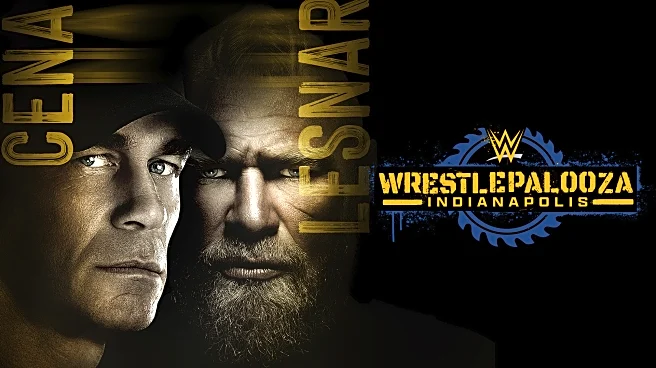As WrestleMania 35 was starting, Paul Heyman stormed to the ring and made a shocking announcement.
That night, his client, WWE Universal Champion Brock Lesnar, was set to defend his title against Seth Rollins.
Despite being a marquee matchup, it wasn’t slotted as the main event. Unwilling to accept second billing, Heyman made Lesnar’s intentions clear.
“If my client is not on last, then we’re not hanging around here all night to wait,” Heyman began. “We’re getting our business done, and we’re getting on a jet to Las Vegas, where my client is ultimately appreciated.”
At the time, rumors circulated that Lesnar was negotiating to return to the UFC. Demanding to start the show played into Lesnar’s persona as a selfish part-timer. Adding to that was the match itself, which ended in under three minutes — less time than it takes to watch a movie trailer.
Now, six years later, Lesnar is set to open another major event.
On Thursday, news broke that the former WWE and UFC Champion will kick off Wrestlepalooza this Saturday against John Cena. Originally expected to headline the show, it seems WWE and its new streaming partner, ESPN, want to hook fans early — and encourage last-minute subscriptions — with what could be the final chapter in their 20-year rivalry.
The decision continues a trend Lesnar helped start back in 2019: opening a show with a headline match. For years, events typically began with lower-card bouts, and gradually built toward the main event. Now, matches worthy of closing the night often lead off.
Like any shift, this approach has its pros and cons. For certain talent, it’s a chance to “get in and get out” — a personal perk or professional necessity, especially with outside commitments.
For fans and the company, it’s a way to capitalize on crowd energy early, starting with maximum impact.
But depending on the match’s quality and length, it can create an early peak followed by a lull, especially in bouts that immediately follow.
Last month at Clash in Paris, Roman Reigns kicked the night off with his second singles match of the year, facing Bronson Reed. The bout, backed by a strong buildup, dominated the first hour of the show — including an extended post-match fallout.
When the second match began — a tag team title bout between the Wyatt Sicks and the Street Profits — the crowd had noticeably cooled.
Later, energy spiked when John Cena faced Logan Paul. Just before the main event, the crowd came alive again as fans sang along to CM Punk and Seth Rollins’ entrance themes. Yet the audience was mostly silent until the finish.
Notably, in 2025, it’s the openers that deliver clean finishes, as the main events have often ended in chaos.
At Night of Champions, John Cena retained the Undisputed WWE Title over CM Punk after two ref bumps and outside help from Rollins and his group, The Vision. In contrast, the night began with a long-awaited showdown between Cody Rhodes and Randy Orton, which ended with Rhodes beating Orton clean in just under 20 minutes to win the King of the Ring tournament.
If WWE sticks to its current formula, Wrestlepalooza will start with a crowd-pleasing opener and end in an overbooked mess. And if Lesnar and Cena deliver as they have in the past, the next match will struggle to revive a crowd trying to catch its breath.
Which format do you prefer: a hot start with a main event-quality match or building momentum toward a final climax? Share your thoughts in the comments section.









